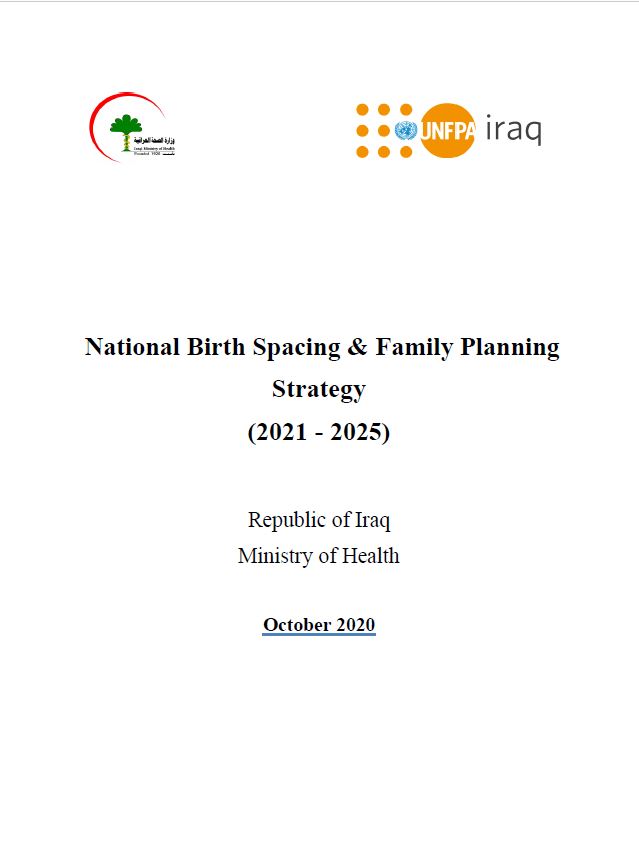Global evidence shows that access to contraceptives allows couples and individuals to make an informed decision about a family formation, when and how many children to have. These decisions empower women, enhance education and employment options for all, which leads to an improvement in family income and stability, as well as the well-being of children.
In Iraq, the Adolescent Fertility rate is still among the highest in the region (70/1,000 adolescent girls); but the use of modern contraceptives is about 36%. It means that many couples and individuals who need FP services do not have access to them, which violates their reproductive rights.
The National Family Planning Strategy (2021-2025) was developed by the Ministry of Health with the support of UNFPA and funding from Sweden and in consultation with many stakeholders, including women and youth to ensure that their rights and needs are well addressed.

